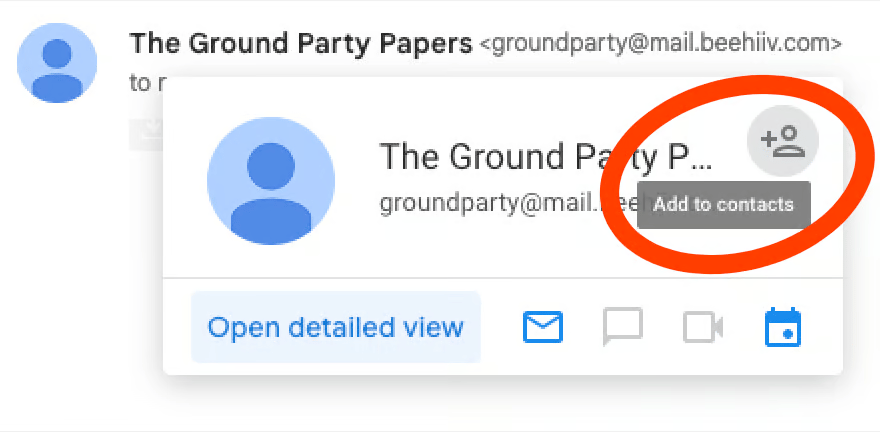- Ground Party Papers
- Posts
- Ground Party Papers - Third Sunday of August
Ground Party Papers - Third Sunday of August
In this edition…
Lifestyle
Creative covert camping
Arizona Civics
Prop 133 vs Prop 140 – The 2024 battle for Arizona
Prop 133: Partisan primaries forever
Prop 140: Open primaries, access for independents
Fair standards for candidates
Primaries’ grand opening
No more tax dollars for party politics
Option for ranked-choice voting
The establishment is shook
A path forward for an independent Arizona
— Ground Party Pulse —
Water News
Hobbs and ADWR sued over San Pedro River neglect
Land News
What do the military, ranchers, and conservationists have in common?
Local Politics
Crosby certifies elections, hand-counts confirm votes
County News
Supervisors to vote on property tax increase tomorrow
Builder Inspo
Legendary homestead Ransom Ranch has finally sold

Creative covert camping
I’m not going to claim that this is a very useful idea, but I had to share it anyway. It’s got the DIY charm we love.
“Every time I am stressed I watch Steve. So relaxing with his soothing voice. He is the Bob Ross of stealth camping!”

Cochēz, our mascot, at a “work party” with neighbors.
Life is one big work party. Don’t forget to tip your DJ.
Prop 133 vs Prop 140 — The 2024 battle for Arizona
In today’s edition, I’m switching things around. Up front I’m sharing what I hope will be helpful perspectives on these November ballot measures that could change the future of Arizona politics. The typical homesteader/local news items will be included in today’s Ground Party Pulse. I’ll probably switch things back to usual in the next edition.
Prop 133: Partisan primaries forever
Presently, the Arizona Constitution charges the legislature with creating primary elections laws. Those current laws only allow for registered parties (Democrat, Republican, Green, Libertarian, and No Labels) to elect a candidate in the primaries. Independent candidates don’t participate until the general in November.
Proposition 133 is a state constitutional amendment, put on the ballot by the legislature, which would require that primaries will always be party-oriented, and that local governments cannot create alternative primary election rules. (This proposal was created by Rep. Austin Smith who also proposed HB2021 this year, the bill which would have made it practically impossible for citizens to take on corporate agriculture in court. See my previous report.)
"Most voters are not centrist. Most voters are left or most voters are right. And so by structuring a system where all we can get out of it is moderates, nobody gets their first choice."
Kolodin is spinning harder than an Olympic breakdancer. As of July, 34% of Arizona voters are registered as independent, compared to 35.5% as Republican and 29% as Democrat. And ASU’s polling of Arizona voters found that most identified as moderate, no matter their party affiliation.
If you’re wondering how Hobbs got elected over Lake, and Mayes over Hamadeh, try placing all four candidates on this graph. We’re not exactly a “purple” state.
But guess how many legislators are independent.
Zero.
And the legislators behind Prop 133 would like to keep it that way. To get around the legislative process, they’re using a fingers-crossed strategy: A constitutional amendment proposal which puts the issue directly to voters.
This proposal, like previous efforts from legislators, would also prohibit local governments from instituting their own election formats like ranked-choice voting.
Prop 140: Open primaries, access for independents
It has arrived. Proposition 140, the Make Elections Fair Act, rides in to the capitol with a mission: eliminating the hyper-partisan lesser-of-two-evils elections dynamic that has been keeping Arizona politics in a destructive gridlock for ages.
Fair standards for candidates: Currently, lawmakers require non-party candidates (independents) to collect twice as many to six times as many citizen signatures to qualify for the ballot. That’s a massive barrier to entry just to be able to compete in the world of left-right politics.
Prop 140 tears that barrier down.
D. ALL CANDIDATES FOR AN OFFICE, REGARDLESS OF POLITICAL PARTY AFFILIATION OR NONAFFILIATION, SHALL HAVE THE SAME SIGNATURE REQUIREMENTS TO QUALIFY FOR THE PRIMARY ELECTION BALLOT FOR THE OFFICE. AN OTHERWISE QUALIFIED ELECTOR (AKA CITIZEN) MAY SIGN A CANDIDATE NOMINATION PETITION WITHOUT REGARD TO THE POLITICAL PARTY AFFILIATION OR NONAFFILIATION OF THE QUALIFIED ELECTOR OR THE CANDIDATE.
Primaries’ grand opening: If you voted in the primaries last month, you know that you had to choose a single-party ballot. Prop 140 puts all the candidates on the same ballot so you can vote for whomever you damn well please. The top vote-winners will move on to the general election.
Why is this important? Now you can vote for a Republican for one office primary, an independent for another, and a Democrat for another. You can vote based on the people rather than party. And come the November general election, a well-supported independent candidate could face off against one other candidate instead of being stuck between a Dem and Republican. Suddenly, “red” and “blue” districts/counties/cities are no longer so easily defined by party.
No more tax dollars for party politics: Even though you may be registered as independent, your tax dollars still pay for party primaries and other party-exclusive elections. Ouch.
A. EXCEPT AS PROVIDED IN SUBSECTION B ON THIS SECTION, PUBLIC MONIES SHALL NOT BE SPENT TO ADMINISTER POLITICAL PARTY ELECTIONS, INCLUDING, WITHOUT LIMITATION, THE ELECTION OF PRECINCT COMMITTEE OFFICERS, THE PRESIDENTIAL PREFERENCE ELECTION, AND PARTISAN PRIMARY ELECTIONS TO NOMINATE A CANDIDATE FOR PUBLIC OFFICE. THIS SECTION APPLIES TO ALL JURISDICTIONS IN THIS STATE, INCLUDING CHARTER CITIES.
To be clear: there will still be funding to facilitate the elections, just not for partisan elections.
Option for ranked-choice voting: Prop 140 doesn’t require ranked-choice general elections, but it puts the option on the table. It will be up to legislators to decide if more than two candidates will advance to the general election for a single-seat office (like a district’s county supervisor, or the attorney general). If they keep it at two candidates, a typical majority election is held. If they create rules for three or more candidates to advance, ranked-choice voting is in effect.
Establishment politicians are doing their best to scare voters about ranked-choice elections, claiming that they are “overly complicated” when they are, in fact, very simple. And without them, there’s much less chance of seeing independent or third party candidates in office. That’s why lawmakers in many states have recently passed total bans on the system — they don’t want even a local government upsetting the partisan system.
This is what divide and conquer looks like.
The establishment is shook: Lawmakers and special interests are attacking Prop 140 from every angle.
A group of wealthy political influencers in Arizona called the Free Enterprise Club challenged Prop 140 on the grounds that it violated the “single subject” rule which prohibits a constitutional amendment from addressing more than one subject. A judge disagreed with their complaint.
April Smith, the Field Director for the Free Enterprise Club filed a separate lawsuit questioning whether the initiative got enough signatures to qualify for the ballot. A judge said yes, they got enough signatures.
These clones are trying their best to protect the partisan system.
Lawmakers are trying to sink the measure as well.
The Legislative Council is a select group of legislators who design and approve the descriptions of ballot measures as they’ll appear on the November ballot. Typically, the Democrats and Republicans in the council fight over these descriptions, and the majority party wins. Out of the 14 ballot measures this year, only 3 of the council’s descriptions passed with support from both parties, and two of the three were Props. 133 and 140.
As you might imagine, these lawmakers spun the description of Prop 140. Even though the proposal only requires open primaries and leaves ranked-choice voting as optional, the approved description puts the ranked-choice option up top, as if it were the main objective of the measure. The Make Elections Fair PAC took the council to court, claiming that their description misrepresented the measure. A judge agreed and has ordered the council to rewrite the description.
And Prop 133 itself is an attack on Prop 140. If both measures remain on the ballot in November, the measure with the most votes wins and disqualifies the other.
Lawmakers in other states are making similar moves.
Earlier this month, Washington D.C.’s majority Democratic Party unsuccessfully tried to remove Initiative 83 from the 2024 ballot, another proposal for open primaries and ranked-choice voting. A few days later, the Democratic party of South Dakota joined the Republicans in opposing an amendment to create open primaries.
Meanwhile, Republicans in Louisiana and Texas are trying to replace their current open primaries with closed primaries in order to keep moderate candidates out of office.
All of this is happening as Americans nationwide are setting a record for identifying as independents, accounting for 41% of voters, in contrast to 28% as Democrats and 28% as Republicans.
“Sometimes, when we see party opposition, that can be a reflection of elected officials who know how to campaign, know how to win under the old system, not quite ready to want to throw that system out yet.”
A path forward for an independent Arizona:
I’ll posit that politically-engaged independents come in three varieties.
Moderates who try to strike a balance between left and right positions.
Centrists who try to avoid left-right affiliations altogether and represent themselves as individuals first and foremost. En masse, they could seek a “tripartisan” balance of power, breaking up the established duopoly, perhaps working toward the eventual establishment of an Independent Caucus at the capitol.
Rebels — to use the term in a non-pejorative way — who seek office or influence to root out corruption and decay in a political system.
I suppose we’d do well to have all varieties of independents make their way into government offices.
Except, of course, for NIMRODs. That’s my acronym for Nominally Independent, Mainly Republican Or Democrat. With a popular movement toward independent candidates, rest assured that covert Republicans and Democrats will try to sell themselves as independents with the hidden intent of pursuing partisan policies. We would depend on good journalism to sniff out and expose NIMRODs before they can install themselves in office.
But an independent movement won’t get off the ground without a mini-revolution in our electoral system. Open primaries, ranked-choice voting — these tools make it possible to outmaneuver the duopoly. And the longer we wait, the more opportunities the establishment will have to push those tools out of the public’s reach.
In a state where the legislature is a close 50/50 split, and every vote counts, even a very slim minority of clever independent lawmakers could wield a lot of decision-making power and elevate the quality of policy-making for the public.
That’s the idea, anyway.
Today’s edition of the Pulse covers ongoing legal battles over the future of the San Pedro River (the last free-flowing river in the Southwest), Tom Crosby’s unsurprising decision to certify his own win in the primary elections, the Sentinel Landscapes Partnership’s recent success in adding 149 acres to the Coronado National Forest, tomorrow’s county vote on property tax increases, and some homegrown builder inspo: the legendary Ransom Ranch.
The Pulse costs $5 or $10 a month, your choice. I’m trying to keep this thing affordable, put in the hard work required for good journalism, and save up some money to start building my own little homestead. Not easy to pull off, but I’m very encouraged by everyone who has already become a supporter of this project. Thanks a ton.
The Ground Party Papers are issued every first and third Sunday of the month.
To make sure the Ground Party Papers stays in your Primary inbox instead of the “Promotions” tab, add [email protected] to your contacts list.

Thanks for reading!
Reply